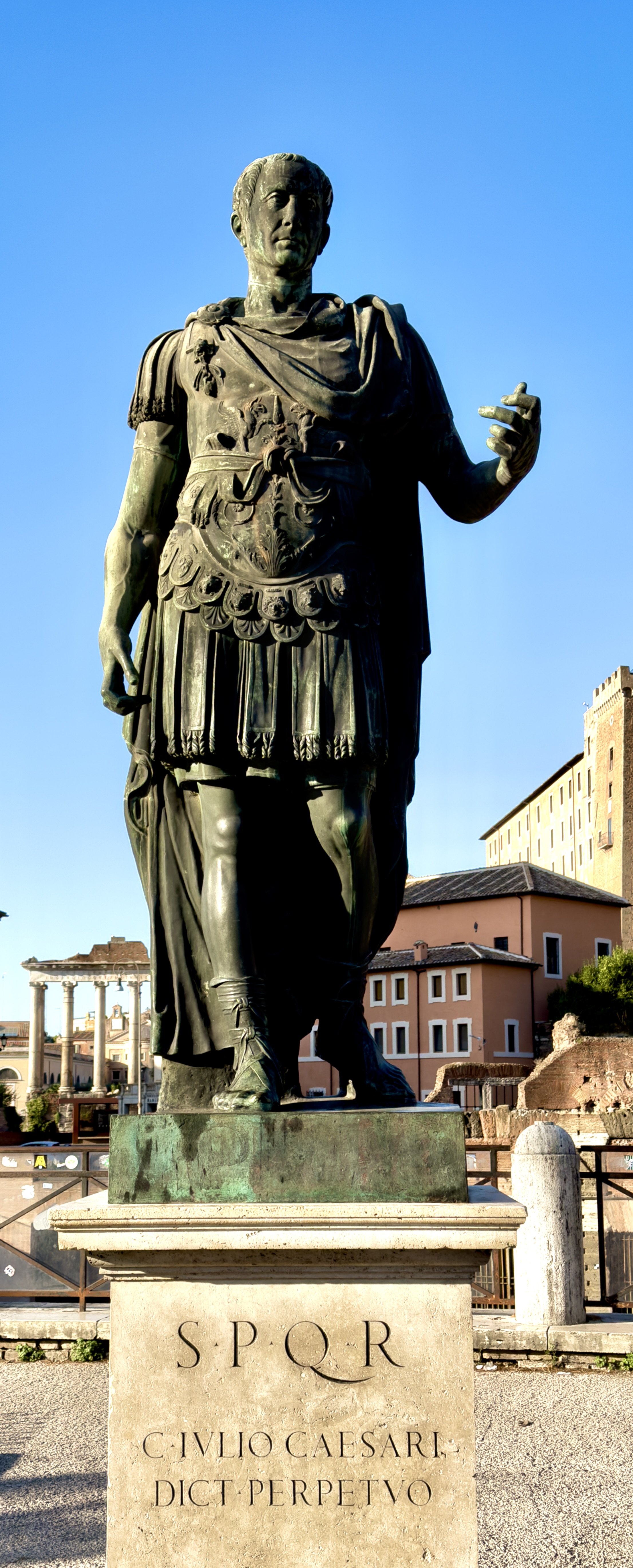WHAT DID THE ROMANS CALL 44 BC?
There are few assassination dates most of us can recite. Many know November 22, 1963 as the date of JFK’s death. A select group could probably tell you Lincoln was assassinated on April 14, 1865. Still others could give the dates for MLK Jr’s & RFK’s deaths. But there’s one assassination date that a great number of us know even though it happened over 2,000 years ago. Of course, I’m talking about March 15, 44 BC – the Ides of March – the date of Julius Caesar’s assassination.
The Roman calendar is a fascinating, perplexing thing. Rather than dates like ‘the 15th,’ they determined the days with kalends, ides and nones, each referring to a part of a month, such as the beginning or the middle. A specific day could be said to have occurred ‘3 days after the kalends,’ which would typically mean the 3rd or 4th of the month.
As complicated and imprecise as that was, the way they determined the year was even more complicated and less precise.
Obviously, people living in 44 BC didn’t refer to that year as such, given that the “C” was still a few decades away. So how would ancient Romans have understood the passage of years? It was challenging. Let’s explore how …
Imagine that you had to know every US President and Vice President and the years they served, starting with George Washington and John Adams in 1789. Need to tell someone when the stock market crashed? Rather than 1929, you’d say “in the year of the Presidency of Herbert Hoover and Charles Curtis.” You might indicate your great-grandmother’s birth a decade later by saying “in the year of the Presidency of Franklin Roosevelt and John Nance Garner.”
DICT. PERPETVO - Dictator in perpetuity. That is, dictator for life, a life which ended shortly after he received that title.
Got it? Ok, now It gets harder. Imagine that rather than electing a President every 4 years, we did it annually, and only rarely did someone serve consecutive terms. Let’s say you’re up to around 500 names at this point (250 years of US history, 2 new men every year … you get it).
Add another layer of difficulty so that rather than going back nearly 250 years in history as the US does, you had 500 years of annual elections with different victors to remember.
Fortunately, you wouldn’t have to recite all 1,000 names in order (though some could), but you should at least know whether one particular consulship occurred before or after another. Still, among all these names, you’d have to recall a vast amount of information. And perhaps worst of all, given the likelihood that you were illiterate, the handful of scrolls or inscriptions that could inform you were useless.
Welcome to ancient Rome. Rather than Presidents, however, you’d need to know and refer to the 2 consuls elected in any given year. Recall that the consulship was the highest office in Rome, and 2 men were elected each year and rarely repeated. Each only served a single year, starting on January 1st, so by 44 BC, the list was very, very long.
So rather than saying Julius Caesar’s assassination happened in 44 BC, Romans of the time and centuries afterwards would date it as Iulius Caesar et Marcus Antonius Vero Consilubus, or “In The Year of the Consulship of Julius Caesar V and Marc Antony.” The “V” indicates that it was Caesar’s 5th term as consul. As I said, repeat consulships were rare, but in Caesar’s case, seizing absolute power had its privileges. It’s also likely that ‘the year of Caesar’s death’ become its own sort of designation for 44 BC. “When were you born?” “In the year of Caesar’s death.” “Ooh bad omen, amicus!”
Romans valued anniversaries of key battles and events, enough so that the average citizen would have to recall scores, if not hundreds, of consulships, in the order which they occurred. No wonder they relied heavily on phrases like “last year” or “4 years ago.”
Only rarely did the Romans refer to a year by a number, as we do. Ab urbe condita, meaning ‘from the city’s creation,’ is a method of dating years starting with the founding of Rome. We know that year as 753 BC and it was 1 AUC by this system. While this numbering makes much more sense to us, it was mainly used by historians writing during the Empire, each of whom used it differently. It never caught on, though it is useful to scholars today.
We credit the Romans with all sorts of traditions and improvements and ideas that enrich our lives. But thank Jupiter we didn’t adapt their calendar system. At least not the one I describe above. We would, of course, eventually thank Julius Caesar for instituting the Julian calendar which, while not alleviating the problem of naming years, did ensure that a calendar year equaled one trip of the earth around the sun (or pretty darn close). And for the time, that was a huge leap forward.


